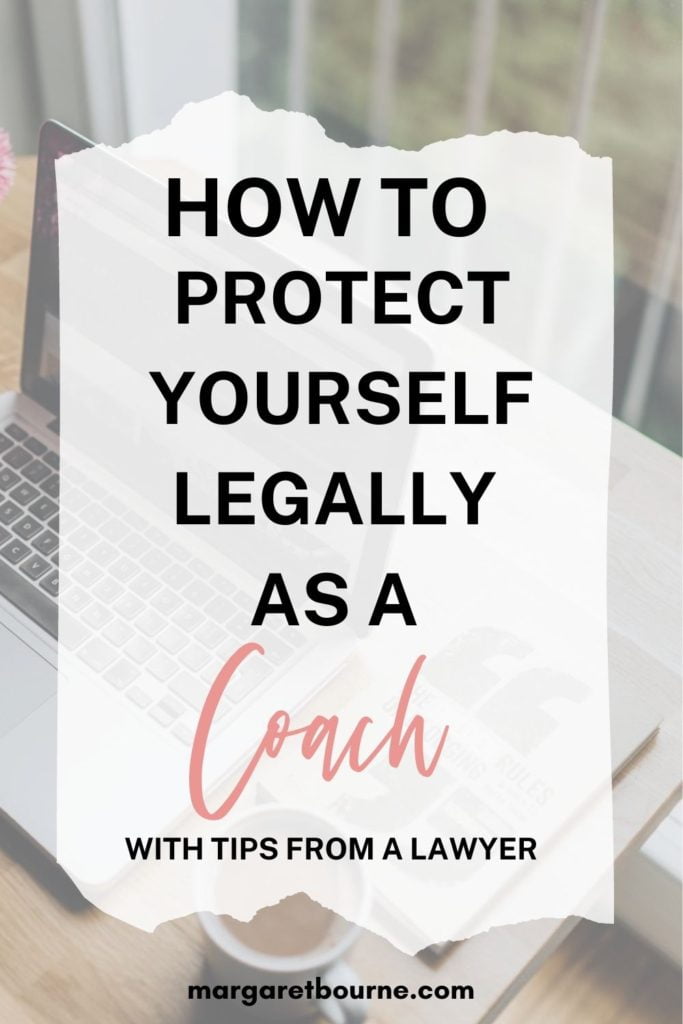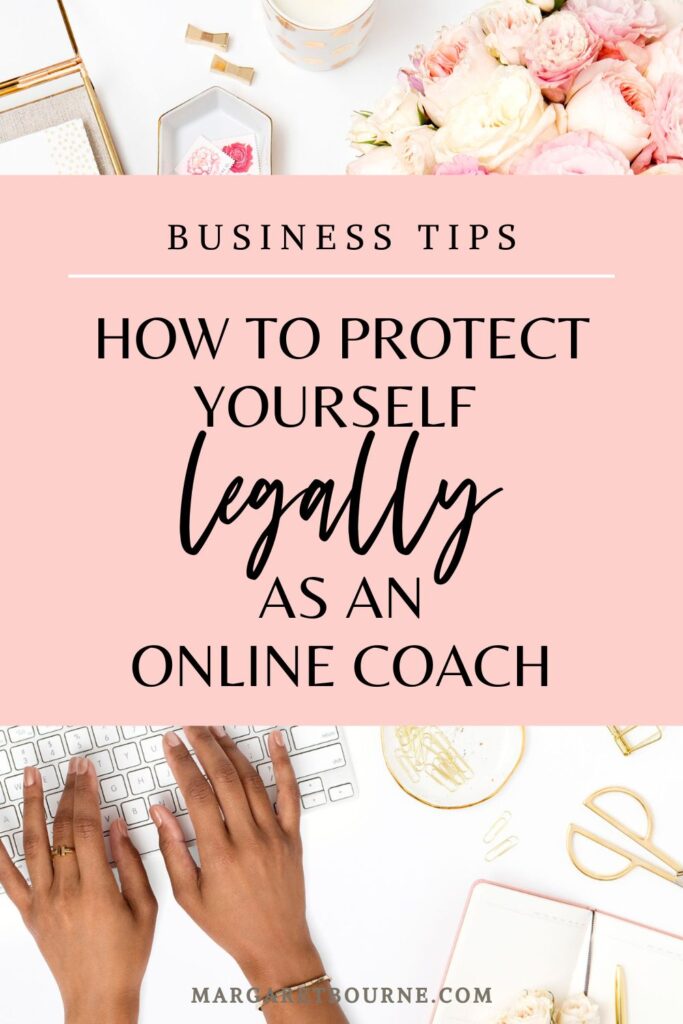
One of the best ways to start an online business in 2024 is to sell your services. Coaching is a great way to do so if you’re an expert in any given subject. However, you need to consider the key ways to protect yourself legally as a coach.
One key way, which we’ll explore in this post is having a coaching agreement template on hand to have your clients sign.
With coaching businesses booming as more people go from employee to entrepreneur, there are many out there that are doing things right, while some are not.
You may have seen stories floating around where somebody got screwed for thousands of dollars with a client because expectations weren’t met.
Not only did they not get paid, but they also had to perhaps cover legal fees to fight for payment or even worse… a lawsuit.
But what if I told you it could have all been avoided with a small investment?
If you’re starting up a business, there will always be upfront costs you’ll need to pay to get the right tools and resources to do it right.
This includes online coaching tools and resources.
Like with a blog, you’ll need to protect yourself and your site legally.
In the case of an online coaching business, it’s extremely important to have key legal documents for your site, and one legal document to protect yourself and your clients legally.
Disclosure: I’m not a lawyer, nor is this legal advice. It’s just information that I’ve found useful in protecting my blog that you may find helpful as well. This post contains affiliate links to products and services that I use and recommend. If you decide to click and purchase, I may receive a small commission at no extra cost to you. For more information please read my Disclaimer.
Bookmark this post for future reference on Pinterest!

Protecting Yourself Legally As A Coach
If you’ve started a coaching business, you have to think of it AS A BUSINESS.
There are several legal tips for coaches to consider. Any online business that’s in good standing has a few key elements:
- All the necessary legal pages: Privacy Policy, Disclaimer, and Terms and Conditions (get a customizable Legal Bundle template pack)
- A process to bring clients on board
- A coaching agreement or contract that gets signed by BOTH parties before any work commences.
- A means for clients to pay for your services based on a scope of work (PayPal, Stripe, or a digital selling platform such as Podia or Sendowl)
The second last point is vital. It’s one that many newbie coaches who haven’t done their homework fail to do.
In my past life, I worked with many clients for PR and marketing programs.
Every time there was a budget provided for work, we would do a scope of work document that was an addendum to the Master Services Agreement.
The agreement was signed initially when the client decided to have our agency be the agency of record, working on their PR/marketing activities. Any subsequent programs and projects would be based on that foundational master services agreement.
That scope of work document had a spot at the end of the document for the client’s signature as a sign-off on the expected activities for the budget they were providing us.
The same lesson applies to coaching activities.
The number one rule is this:
Always have a contract or agreement in place before you begin any work.

Coaching Legally: Tips From A Lawyer
To clarify further, I did an interview with Amira from A Self Guru to get some legal tips for coaches. If you haven’t heard of her before, you should!
She’s a lawyer by profession, as well as a successful blogger. Her legal templates for bloggers and online businesses are fantastic. I have them on my sites as well.
For my coaching business, I needed her Coaching Agreement template.
But before we get into that, I asked her a few key questions.
- What are your top legal tips for anybody who is planning to start a coaching service with their blog?
- Why is a coaching agreement so important?
- Why is it that an email agreement isn’t sufficient to protect you legally and financially?
- What is the best way to explain to a potential client the need for their approval of an agreement?
- What is your greatest joy in coaching your clients?
Watch my interview with Amira – the first section is about her legal bundle and how I’ve used it to protect my blog.
You can watch the whole video, or you can fast forward to about the 10:40 mark to hear her answer my questions on how to protect yourself legally as a coach.
My Process For Working With Clients
While this approach works for me, you may need to modify it to work for you and your clients. I’m sharing it as sometimes it’s confusing as to what to do first.
When I have a client that wants to work with me for coaching or an audit, I always do the following:
- Ask them to reach out to me first to discuss their needs. This is clearly stated on my shop pages for sessions and audits as a first step.
- I confirm the ‘scope of work’ with the client. For my blog coaching services, this is whether they’re looking for one coaching session or ongoing sessions, or perhaps a one-time blog or Pinterest account audit.
- I customize the coaching agreement to include the expected activities and the client’s contact information. A PDF copy of the contract is sent securely via Dropbox Sign for the client’s signature.
- Finally, the client purchases the service on my site to secure their spot and we book the Zoom session.
This approach ensures that no work is done before the contract is signed and the payment is made.
It also clearly lets the client know what their responsibilities are and that your work is only to coach and provide counsel.
You aren’t doing the work for the client – their results are based on their work and input.
My responsibility to my clients is to perform the services outlined in the coaching agreement we’ve both signed and approved.
This is a great way to keep accountable to your clients, but also to ensure that if for any reason they are dissatisfied, there is protection for you.
A Self Guru Coaching Agreement Template Review
It’s easy to protect yourself legally as a coach with a Coaching agreement.
What I love about Amira’s templates is that they:
- Can be used internationally
- Are super-easy to customize
- Aren’t expensive
- Are designed to be used by bloggers, online entrepreneurs and businesses
If I was to seek a similar document from my lawyer, it would probably cost double the amount.
The Coaching Agreement is just like all the other templates from Amira. Well written and easy to customize to my own needs and my client’s needs.
Get your copy of the coaching agreement and work with your clients, free of worries!
So Cover Your A** Before You Begin Coaching
Before you start working with a client, ALWAYS think of protecting yourself legally.
When it comes to coaching, you will probably have an ongoing working relationship with clients if you ensure you both are protected legally and financially.
Approaching your coaching business as a true business creates a positive perception of you!
Ultimately, you want your clients to rave about you and how you are awesome at helping them out.
This small step is one way you show them you care to do things the right way.
So protect yourself legally as a coach and get coaching!
| Read More: 10 Real Ways To Make Money With Online Jobs You Can Do From Home
QUESTION: If you don’t have a coaching agreement in place yet, what’s holding you back?
Like this post? Share it on Pinterest!



This article on how to protect yourself legally as a coach is a must-read for anyone in the coaching industry. As someone who is passionate about coaching and helping others, I appreciate the practical advice and insights shared here on how to protect my business from legal risks. The tips on how to create a solid coaching agreement, manage client expectations, and handle sensitive issues such as confidentiality and intellectual property are invaluable. I also appreciate the author’s emphasis on the importance of seeking legal advice from a qualified professional to ensure that all legal requirements are met. Thank you, Margaret Bourne, for providing such a useful resource for coaches looking to protect themselves and their clients.
Great article and video! Coaching agreements or contracts are a must for any coach. It starts the clients/coach relationships on solid ground. Thanks for sharing!
Thank you and yes!!
I needed this! I’ve started a blog and learned a lot about all of the legal requirements. Now, I’d like to start a coaching business and have had questions about the legal aspects. This is so helpful! Thanks for sharing!
You are most welcome! Good luck with your coaching business – let me know when you launch it!